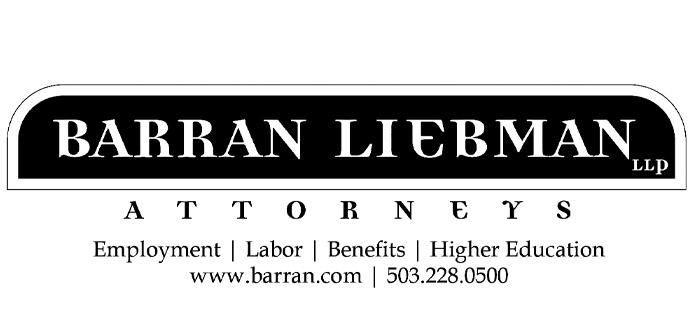Employers have been struggling to make sense of the February 21, 2023 decision by the National Labor Relations Board (NLRB) in McLaren Macomb, where it appeared to prohibit further use of non-disclosure and non-disparagement provisions in agreements between employers and employees. This article examines how the NLRB’s decision impacts non-disclosure and non-disparagement provisions.
The NLRA Applies Broadly
Employers might be asking whether this decision even applies to them. The NLRB should only be controlling workplaces with unions, right? Wrong. The NLRB is governed by the National Labor Relations Act (NLRA), a law that has broad jurisdiction reaching many private employers, including non-union businesses, businesses in states with “right to work” laws, nonprofits and more. While there are specific tests for different industries to assess whether an employer falls under the NLRB’s jurisdiction, it is safe to assume that the NLRB has jurisdiction over the majority of private-sector businesses. A few exceptions include, but are not limited to, federal, state and local governments, airlines and railroads.
Non-disclosure and non-disparagement provisions are commonly included in separation and settlement agreements between employers and employees. Non-disclosure refers to a provision that limits an employee’s right to disclose information about their employment, while non-disparagement refers to limitations on an employee’s right to make negative statements about the employer. Employers prefer to include them in agreements to ensure they have a clean break with employees.
The NLRB’s decision in McLaren Macomb restricts employers from both offering and entering into agreements with “employees” that restrict their “Section 7 rights.” To understand what exactly this means, we have to look at (1) who counts as an employee and (2) what are Section 7 rights?
The NLRA defines “employee” as “any employee,” with a few exceptions. The NLRA excludes agricultural laborers, domestic servants, individuals employed by their parent or spouse, independent contractors, and, most importantly, supervisors. The NLRA defines supervisors as “any individual having authority … to hire, transfer, suspend, lay off, recall, promote, discharge, assign, reward or discipline other employees” on behalf of the employer. The law has also developed over time to create other exclusions, such as for managerial and confidential employees. Unless an individual is not an “employee” under the NLRA, then the restrictions in the McLaren Macomb decision should apply.
McLaren Macomb
What are those restrictions? McLaren Macomb provides that employers cannot offer or enter into agreements with employees that restrict their Section 7 rights. This refers to Section 7 of the NLRA, which states, “Employees shall have the right to self-organization, to form, join or assist labor organizations, to bargain collectively …, and to engage in other concerted activities for the purpose of collective bargaining[.]” Since its inception, the NLRB has interpreted and expanded the scope of Section 7 rights.
Importantly, in McLaren Macomb, the NLRB emphasizes that Section 7 rights include “filing unfair labor practice charges with the [NLRB], assisting other employees in doing so or assisting the Board’s investigative process[.]” The NLRB noted that an employee being able to discuss terms and conditions of employment with coworkers “lies at the heart of protected Section 7 activity.” Terms and conditions of employment broadly refers to information such as employee compensation, workplace policies, employer conduct, the terms of a separation agreement and other information related to the workplace. Therefore, the NLRB held that Section 7 protects “employees who engage in communications with a wide range of third parties” when the communication is related to the terms and conditions of employment. The NLRB then noted that employee statements may be “so disloyal, reckless or maliciously untrue” that they lose the NLRA’s protection.
That left many employers with more questions than answers as they go to rework their policies and standard agreements. The NLRB states that the non-disclosure and non-disparagement terms at issue in McLaren Macomb were overbroad, therefore implying that terms with narrower restrictions may be permissible. Unfortunately, the decision provides no guidance on what standards the NLRB will apply to determine whether non-disclosure or non-disparagement provisions are permissible. The decision instead makes it sound like any restriction on an employee’s ability to make statements about the terms and conditions of their employment will be unlawful unless the statement is defamatory. However, it should be noted that McLaren Macomb does not restrict an employer’s ability to demand that an employee maintain the confidentiality of trade secrets or proprietary information.
The NLRB’s General Counsel issued a memorandum providing guidance on its interpretation of the McLaren Macomb decision on March 22, 2023. The guidance offers some key information for employers, however, it is only guidance and does not carry the weight of the law. It also ultimately fails to clarify what exactly makes a non-disclosure or non-disparagement provision “overbroad.” The General Counsel noted that a disclaimer in an agreement clarifying that Section 7 rights are not restricted will not guarantee that non-disclosure and non-disparagement provisions are lawful. Unfortunately for employers, the General Counsel believes that agreements entered into before the decision was issued that contain overbroad non-disclosure and non-disparagement provisions are unlawful and may put employers at risk of facing unfair labor practice charges.
For now, employers need to assess their risk tolerance in putting together these types of agreements. Considering that Oregon and Washington also have laws that limit employers’ abilities to enter into non-disclosure and non-disparagement agreements with employees, employers have many laws to consider and should check in with their counsel before presenting these agreements to employees.
Nick Ball is an attorney at Barran Liebman LLP, where he focuses his practice on employment law advice and litigation. For questions, contact him at 503-276-2150 or nball@barran.com.





